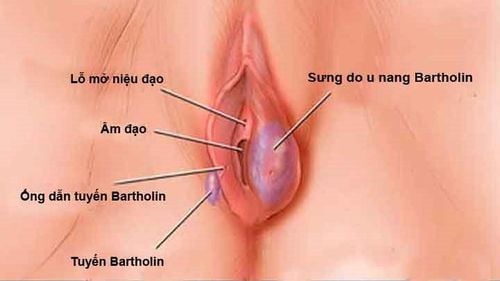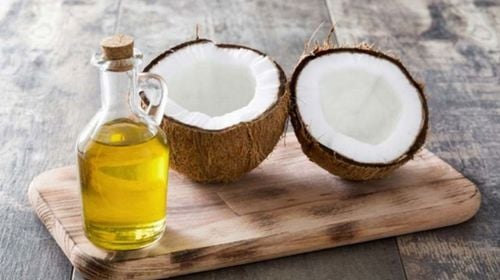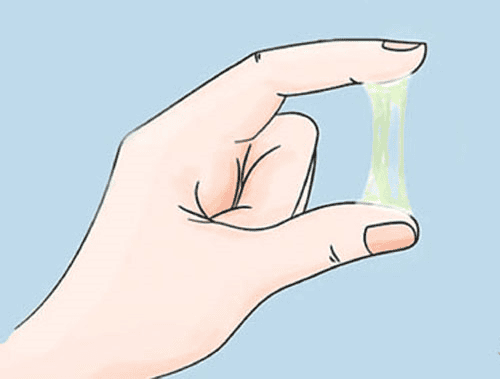This is an automatically translated article.
Women entering perimenopause and menopause are likely to experience some physical and emotional changes. Among them, vaginal dryness is a fairly common symptom. Vaginal lubricants are useful measures to improve this condition.
Vaginal tissue thinning and drying due to lack of estrogen during menopause can make intimacy uncomfortable, even painful. If vaginal dryness is mild or just causing discomfort during sex, try using a vaginal gel or lubricant to reduce friction. Vaginal lubricants work quickly, they help relieve pain and dryness for a short time during sex.
Below are some of the popular vaginal lubricants available, and the pros and cons of each.
1. Water-based vaginal lubricant
Advantages
Water found in water-based lubricants is sometimes combined with glycerin. This colorless, odorless liquid is used in many personal care products.
The use of water-based vaginal lubricants increases pleasure and satisfaction during sexual intercourse. This type of lubricant will not damage latex condoms and is less irritating to the vagina than oil-based lubricants. They are also non-staining and wash off easily with soap and water.
Water-based vaginal lubricants are safe to use and easy to find in stores.
Cons
Water-based lubricants can dry quickly, so reapplication may be necessary. This substance is water soluble so vaginal lubrication with this will not be effective during sex in the shower or pool.
Some vaginal lubricants contain preservatives and additives such as glycerin and parabens. These substances can irritate sensitive vaginal tissues or cause yeast infections in some women. Parabens have mild estrogen-like effects. There has been question about whether they might contribute to breast cancer, but so far no studies have shown any definite link.
Some water-based vaginal lubricants such as: Astroglide, KY Jelly, Isabel Fay, Carrageenan,..
2. Silicone Vaginal Lubricant
Advantage
These products provide the greatest amount of lubrication and will not dry out during sex. Silicone-based vaginal lubricants are not water-soluble and do not affect latex condoms like oil-based products do. Silicone-based lubricants are also less irritating than water-based lubricants.
Cons
Lubricants made from silicone are expensive and can be difficult to find in stores. They can also be difficult to wash off completely with soap and water.
Some silicone-based vaginal lubricants such as: Durex KY, Premium Lubricant Navy
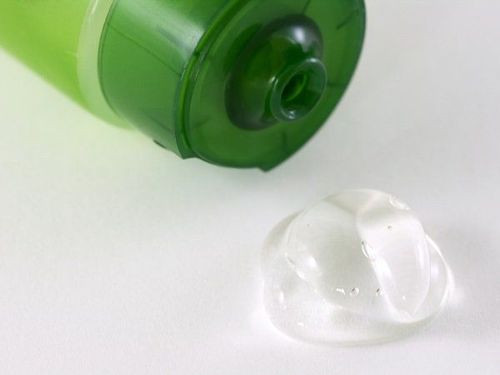
Chất bôi trơn âm đạo gốc silicone cung cấp lượng bôi trơn lớn nhất và sẽ không bị khô khi quan hệ tình dục
3. Oil-based vaginal lubricants
Advantages
Oil-based lubricants last longer than water-based lubricants and are not water-soluble. These lubricants are also free of irritating preservatives and other additives.
Cons
Oil-based lubricants can damage latex condoms, making them more susceptible to sexually transmitted diseases or becoming pregnant (if still menstruating). Oil-based lubricants can be safely used with polyurethane condoms.
Some oil-based lubricants - including lubricating oils and baby oils - can increase the risk of urinary tract infections. The oil also stains bed sheets, underwear and other fabrics.
Oil-based vaginal lubricants come in many varieties including natural oils such as avocado, olive, coconut and synthetic oils.
4. Natural Vaginal Lubricant
Pros
If you prefer a natural product, this might be your first choice. Natural vaginal lubricants do not contain ingredients such as glycerin or parabens that can cause skin irritation.
Cons
Natural lubricants are more expensive but have a shorter shelf life than others
Some natural lubricants like Pink S, Vanessa $ Co,...
5. Vegetable Oil-Based Vaginal Lubricant
Pros
If you love oil-based lubricants but want to use all-natural or cost-effective store-bought products, these can be found right in your pantry . They're also a good choice if you've run out of vaginal lubricant. The rule is that if substances are safe to eat, they are also safe to use vaginally.
Cons
Even natural oils can damage latex condoms, and can stain fabrics. It's better to use a water- or silicone-based lubricant with a condom or diaphragm.
Some vegetable oil based lubricants such as avocado oil, coconut oil, olive oil, Crisco
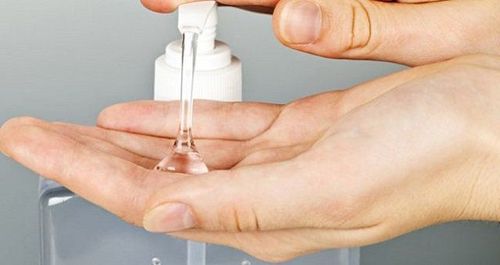
Chất bôi trơn âm đạo gốc dầu thực vật có thể làm hỏng bao cao su latex, và có thể làm ố vải
6. Warming Lubricant
Pros
These lubricants add ingredients like menthol and capsaicin to create a warming sensation. They can increase sensation and lead to more orgasms.
Cons
Warming lubricants can cause an uncomfortable burning or stinging sensation in some women.
Some vaginal lubricants warm like Durex Play Warming, Play & Joy, Lexy Warming. In summary, vaginal lubricants work best for mild to moderate vaginal dryness. There are different types of vaginal lubricants, each with its own pros and cons. If dryness is more severe or vaginal lubrication doesn't work, see your doctor for appropriate treatment.
Currently, Vinmec has deployed the Basic Gynecological Examination and Screening Package. This examination package can detect inflammatory diseases early, making treatment easy and inexpensive. When registering for the Basic Gynecological Examination and Screening Package, customers will receive:
Gynecological examination. Transvaginal ultrasound of the uterus and ovaries. Bilateral breast ultrasound. Tests such as: Treponema pallidum rapid test, Chlamydia rapid test, taking samples for cervical-vaginal cytology, bacterioscopic staining (female vaginal fluid), HPV genotype PCR automated system, total analysis Automated urine collection.
Please dial HOTLINE for more information or register for an appointment HERE. Download MyVinmec app to make appointments faster and to manage your bookings easily.
Reference source: healthline.com





